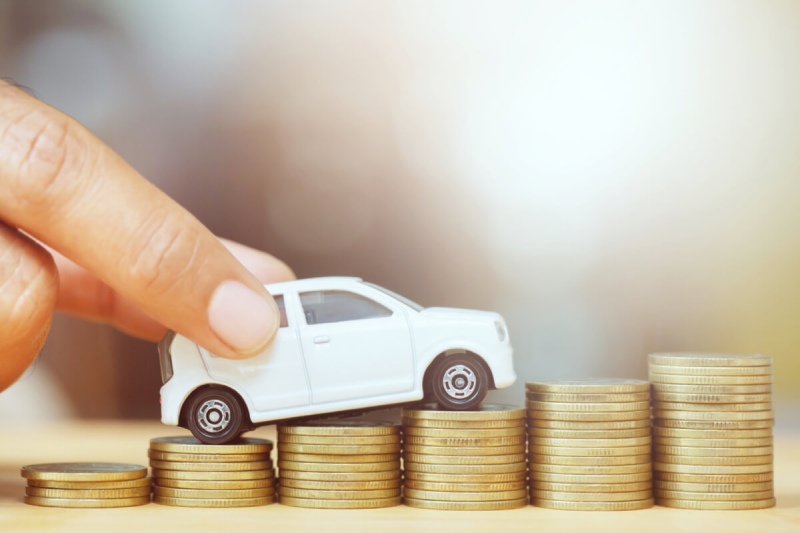
Crucial Advice to Increase The Trade-in Value of Your Car
- Business
- February 14, 2024
It seems sense that the majority of car buyers concentrate their time and efforts on negotiating the greatest deal when buying a vehicle, since this is the largest amount involved in the transaction. However, a crucial aspect that many consumers overlook that might help them save money is obtaining the most for their trade-in car.
Having your trade-in ready when you visit a dealership can literally save you hundreds of dollars. The following Edmunds advice will help you optimize your trade-in value and steer clear of typical blunders.
Prior to Receiving an Evaluation
The amount a dealership is willing to pay for your car is determined by its used car assessment. It is determined by the appraiser’s assessment of your car as well as its current condition. For example, you have no control over the mileage on your car, but you do have control over other variables.
Vehicle transactions are best handled when you have the time, not when the situation calls for it. If you prepare to trade in your car before you really need to buy a new one, you’ll be able to avoid circumstances where your negotiation power is diminished and avoid making expensive blunders.
Discuss Potential Fixes
It’s likely that your trade-in car has some problems you never got around to resolving. Generally speaking, it will probably be less troublesome and more economical to forego making the repairs and have the dealership deduct the amount from its assessment offer. In many cases, dealers can fix issues for a lot cheaper than you can. So don’t feel pressured to achieve perfection with your car.
However, there is at least one benefit to solving minor issues on your own. By doing this, you take charge of the cost of a repair or replacement instead of leaving it up to the appraiser at the dealership to determine how much it should cost. Additionally, when evaluating an offer, the appraiser will surely consider indications of neglect. If you can fix anything easily, it might be worthwhile.
Don’t forget to clean your car. You won’t have to pay extra for a thorough detailing because the dealership will conduct one before it puts any vehicle it resells on the lot. However, when the appraiser makes the final call, cleaning the Cheerios out of the cracks will save you money and dignity.
If your car has aftermarket components, you might want to remove them and replace them with original components. The dealership’s estimate, which may not be much at all, is probably far less than the worth of the aftermarket parts that are sold individually.
Prepare Yourself For Bargaining
Keep in mind that, unless you’re prepared to give up, you give up all control in a negotiation. It is therefore not advisable to depend on the dealership where you intend to purchase a new car to make the best deal. Know what to say when you receive a lowball offer so you’re ready for it. Being ready for this is important. You will have a stronger defense against the appraiser if your car is spotless and well-maintained. Remember to highlight places where the dealership won’t have to spend money, such the tires, when arguing for the value of your car.
The majority of online valuation programs produce both a private-sale and trade-in value, giving you further proof of your car’s worth. Having these on hand will help you negotiate a better bargain.
Receive Many Offers
Having a couple of offers in your pocket is even more persuasive than having a clean car and strong valuation arguments. There are numerous ways to accomplish this, such as using Edmunds or other websites that allow you to create an offer by entering the miles, condition, and VIN of your vehicle. Numerous of these offers require that they be confirmed in person. It takes time to do this, but the result is a leverage tool that a buying dealer cannot overlook.
Think About a Private Transaction
Selling your automobile yourself will increase your cash flow, but there are significant time and risk costs associated with it. Learn about the laws in your state if you choose to go with a private sale. Bills of sale templates and other necessary documentation are available on the websites of most state departments of motor vehicles or the Secretary of State. And keep an eye out for possible fraud. You could feel more at ease closing the purchase at your buyer’s bank.
Keep in mind that when you trade in your car, you are giving up the headache of having to sell it yourself in exchange for a reduced price. In essence, you’re paying the purchasing party for any necessary repairs, documentation, and potentially even marketing for your car. You shouldn’t anticipate receiving a retail price for your trade-in because that transaction has to be at a price the dealer can profit from.